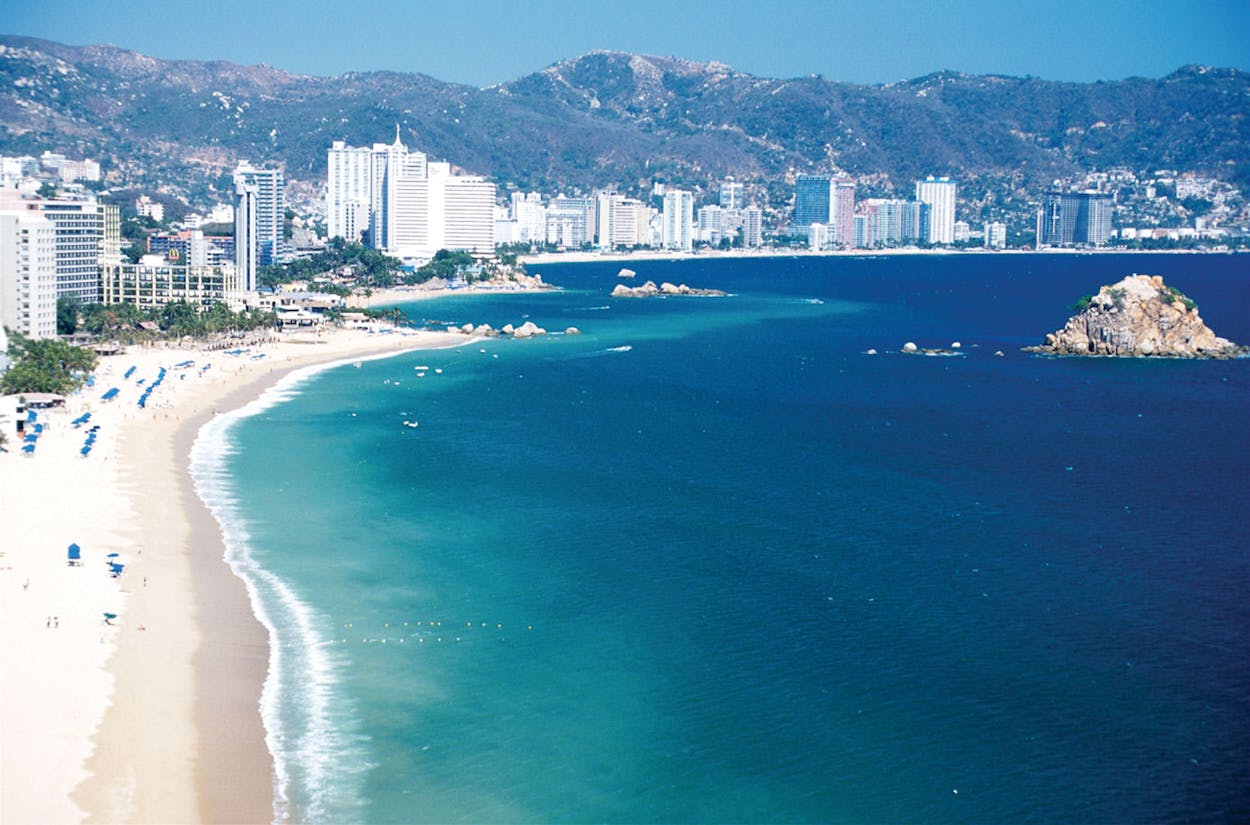For the third straight year, the Texas Department of Public Safety is warning the state’s residents to stay away from Mexico during spring break.
“Based on the unpredictable nature of cartel violence and other criminal elements, we are urging individuals to avoid travel to Mexico at this time,” said DPS’s statement (PDF). “DPS acknowledges that many travel to Mexico without incident, but the risks cannot be ignored.”
The release goes on to outline Mexico’s high number of narcotics-related homicides and increase in the murder of U.S. citizens between 2007 and 2011.
It also singles out the bars and nightclubs in Cancun, Acapulco, Mazatlan, Cabo San Lucas, and Tijuana as “havens for drug dealers and petty criminals” while noting that “the State Department now urges U.S. travelers to defer non-essential travel to all or parts of 14 Mexican states, four more than 2011.”
As Richard Dunham of the Houston Chronicle reported, Mexican Ambassador to the United States Arturo Sarukhan responded with a statement of his own:
Mexico strongly disagrees with the assessment made by Texan officials regarding travel to Mexico in general. As their number one trading partner and largest export market, Mexico believes Texas should be able to more objectively evaluate facts, providing nuance and context, and in doing so, dispel the notion that their motivation is a clear-cut political agenda.
During his Republican presidential campaign, Governor Rick Perry was critical of President Barack Obama on the issue of Mexican crime and border security. He also proposed sending U.S. military forces to help Mexico fight drug-related violence (an offer Sarukhan did not embrace).
“This warning is exceptionally aggressive,” Rodolfo Lopez-Negrete, the chief operating officer of the Mexico Tourism Board, told Reuters’s Jim Forsyth. “To paint Mexico with such a massively broad brush stroke is simply outrageous.”
In a story by Alfredo Corchado of the Dallas Morning News, Lopez-Negrete added that there were no violent incidents in Mexico last year involving spring breakers.
In June of 2011, Lopez-Negrete met with Texas Secretary of State Hope Andrade and DPS officials, hoping they would hear out his statistics and tone down the warnings’ rhetoric.
That effort may have been at least a little bit successful: as Lynn Brezosky of the San Antonio Express-News reported, in last year’s statement, DPS director Steven McCraw dramatically said, “avoid traveling to Mexico during Spring Break and stay alive.”
Corchado also interviewed an Austin-based business consultant James Taylor, who wondered why the warning even fell under state purview:
Why is Texas issuing a countrywide alert? I can understand a borderwide alert, but who is Texas to issue a countrywide alert?” Taylor said. “As a Texan, I do business in Mexico City. I travel to places like Oaxaca. I know there are places that are safe and places that are dangerous. But I will not go to Texas to find out what is safe or not. Is Texas planning to also issue a travel alert to Russia and the Middle East?
The State Department‘s advisory regarding Mexican travel is both less alarmist and much more specific than the DPS release. Americans are advised to “defer non-essential travel” to Texas border towns like Juarez, Matamoros, and Nuevo Laredo, as well as Nuevo Leon (except for Monterrey) and cartel hotbed Sinaloa (except for Mazatlan).
Monterrey, Mazatlan, Tijuana, and Puerto Vallarta are listed as places to “exercise caution,” but there are no advisories in effect for San Miguel de Allende, Oaxaca, Cancun, Acapulco, Yucatan or Mexico City.
“Resort areas and tourist destinations in Mexico generally do not see the levels of drug-related violence and crime reported in the border region and in areas along major trafficking routes,” the State Department’s warning says.
Lumping every part of Mexico together “is like saying ‘I’m not going to Disney World in Orlando because of the violence in New Orleans,'” Tomas Zyber of the online publication Baja Insider has written.
But the State Department also acknowledges that “crime and violence are serious problems throughout the country and can occur anywhere,” a phrase that DPS cut-and-pasted for its own advisory.
- More About:
- Politics & Policy
- Mexico







